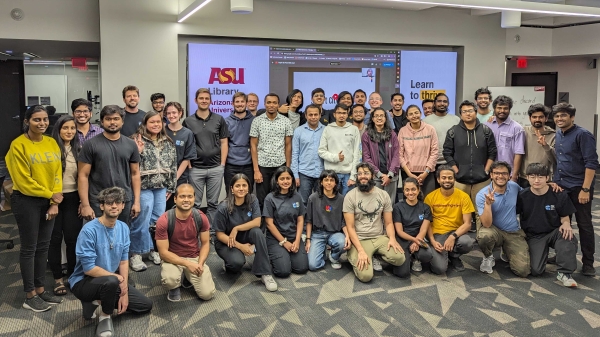The importance of early intervention for child anxiety
ASU professor says catching anxiety early can get children on a healthy mental road to adulthood
Children experience anxiety just like the rest of us, whether they’re too nervous to raise their hand in class or to ask a crush out on a date. But not everybody knows what it’s like when those tendencies interfere with daily life, making simple things like going outside or speaking to strangers nearly impossible.
Armando Pina, an Arizona State University associate professor in psychology, says early intervention into a child’s anxiety is important to getting him or her on a healthy mental road to adulthood. Pina has been researching and implementing anxiety-prevention strategies for children in grades 3-5 for the past five years with a program called REACH for Success.
Question: Why it is important to catch anxiety issues early on in a child’s life?
Answer: Targeting anxiety early is important because when ignored it can affect grades, school performance, social and interpersonal skills, and life outcomes. The longer one waits, the more at risk a person is for developing depression and even substance-use problems. In addition, when anxiety becomes a disorder and a more severe problem, it is more difficult to treat and cure. There is no cure for anxiety disorders, but they can be prevented.
Q: You say interventions can be important at specific ages. What might those interventions be, and what could they help overcome?
A: When children are small and show excessive shyness, the intervention of choice is to provide parents with parenting skills to help kids come out of their shell. When kids are older, like in elementary school, the skills taught by our program (REACH for Success) are the recommended approach, but if kids become more severe or are just excessively anxious then they also need medication. Unfortunately, we do not know enough about the long-term effects of medications for kids who are anxious. We just don’t know what it does to a child’s brain as the child grows up into adulthood.
Q: What are the goals of the interventions?
A: The goal of intervening early is to reduce risk and improve resilience. In other words, help kids learn to face their fears gradually and give them tools to do it effectively. Many kids want to be brave and want to feel less anxious, but they don’t know how to conquer their anxiety.
Q: Left untreated, anxiety in children can lead to issues in what areas of development?
A: Anxiety can lead to fewer friends, isolation, poor grades, school refusal, depression and using substances to self-medicate the anxiety. The sad part is that while anxiety is one of the most common problems in kids, other issues like aggression get more attention. All these child problems are important and need to be targeted. We should not ignore the quiet, shy child in the back of the classroom — we need to help that child as much as the one who is acting out on the playground at school.
Pina works in the Department of Psychology, which is a unit of ASU's College of Liberal Arts and Sciences.
More Science and technology

SpaceHACK highlights student solutions to environmental challenges, digital divide
By Adrianna Nine About 250 students from around the world convened online and at Arizona State University on March 22 for the…

New AI for a new era of discovery
As the legend goes, in 1665, Sir Isaac Newton sat in his garden at Woolsthorpe Manor in England and looked on as a lone apple…

ASU receives 3 awards for research critical to national security
Three researchers in the Ira A. Fulton Schools of Engineering at Arizona State University have received grant awards under the …